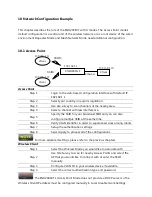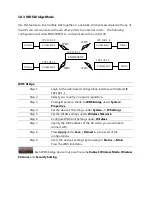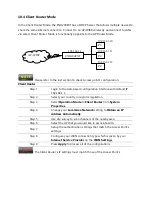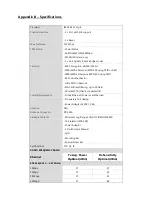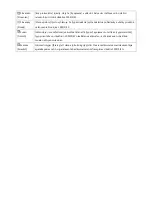
Appendix C – Glossary
Access Point
A base station in a WLAN that act as a central transmitter and receiver of WLAN radio signals.
Ad Hoc Network
A short-term WLAN framework created between two or more WLAN adapters, without going
through an Access Point. An ad hoc network lets computers send data directly to and from
one another. For an ad hoc network to work, each computer on the network needs a WLAN
card installed configured for Ad Hoc mode.
Antenna
A device that sends and receives radio-frequency (RF) signals. Often camouflaged on existing
buildings, trees, water towers or other tall structures, the size and shape of antennas are
generally determined by the frequency of the signal they manage.
Authentication
A process that verifies the identity of a wireless device or end-user. A common form of
authentication is to verify identities by checking a user name and password to allow network
access.
Backbone
A high-speed line or series of connections that form a major pathway within a network.
Bandwidth
The part of the frequency spectrum required to transmit desired information. Each radio
channel has a center frequency and additional frequencies above and below this carrier
frequency that carry the transmitted information. The range of frequencies from the lowest to
the highest used is called the bandwidth.
Bridge
A wireless device that connects multiple networks that are physically separate or use different
media, but which use similar standards.
Bridge Mode
An Access Pointy in bridge mode can operate as a WLAN bridge that connects two wired
network segments. The peer device also must be in bridge mode. This wireless bridge
connection is equivalent to a Wireless Distribution System (WDS).
CHAP
Challenge Handshake Authentication Protocol. An alternative protocol that uses a
challenge/response technique instead of sending passwords over the wire.
Collision
Interference resulting from two network devices sending data at the same time. The network
detects the collision of the two transmitted packets and discards both of them.
Coverage
The region within which a paging receiver can reliably receive the transmission of paging
signals.







